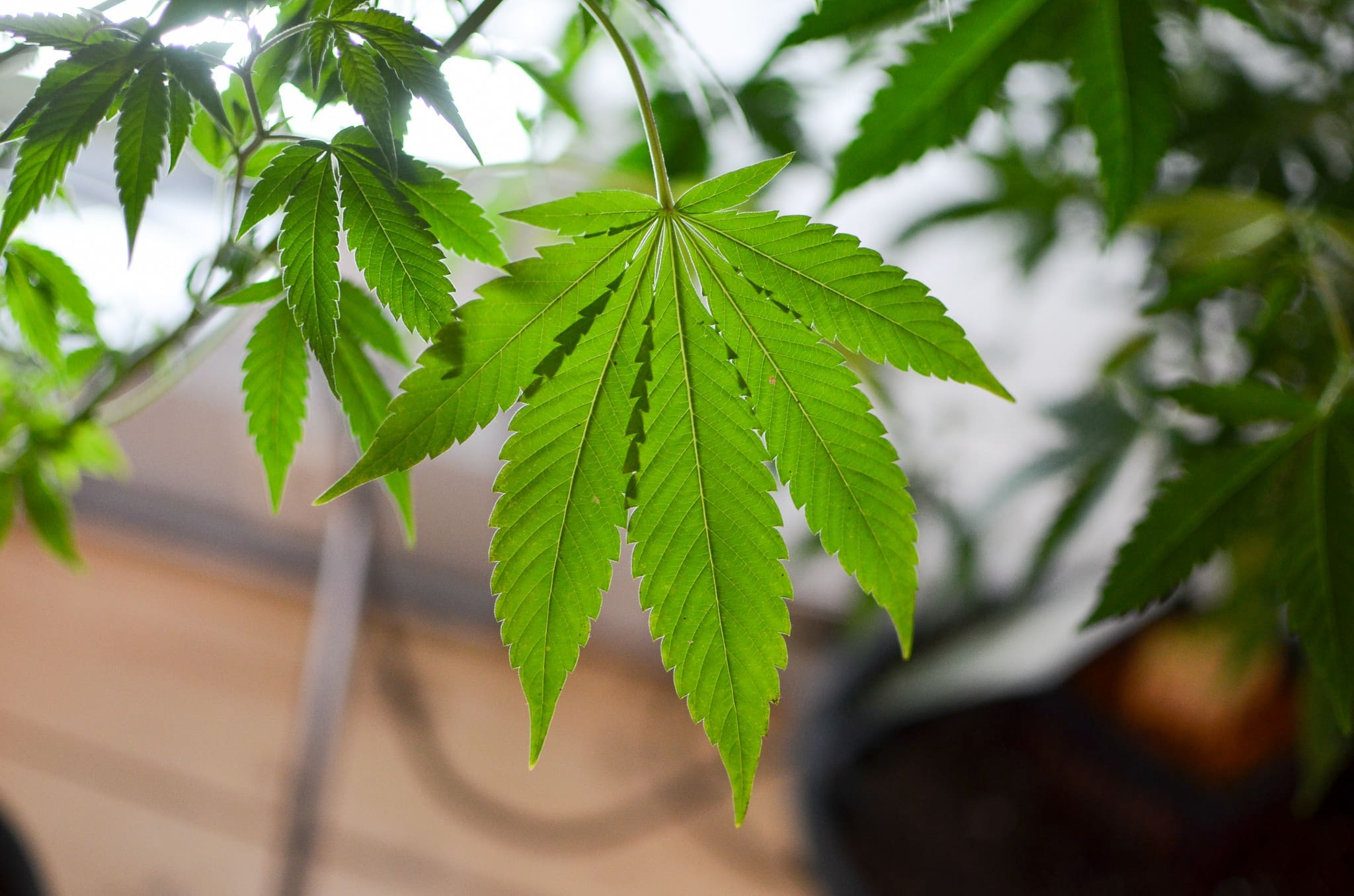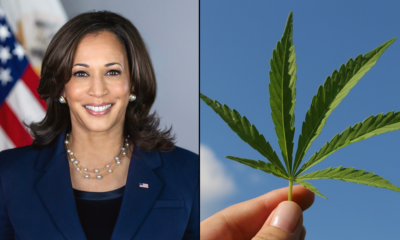Politics
Hawaii Marijuana Activists Urge Action Ahead Of Impending Deadline For Legalization Bill

Following a close 25–23 vote on the Hawaii House floor last week to keep a marijuana legalization bill alive, lawmakers now face a Thursday deadline to pass a bill out of the chamber’s Finance Committee, where some observers expect the proposal to receive a chilly reception if it’s taken up later this week.
Legalization advocates at the group Marijuana Policy Project (MPP) asked supporters in an email on Monday to contact House Speaker Scott Saiki (D) and Rep. Kyle Yamashita (D), who chairs the Finance Committee, and urge them to schedule the bill for consideration and pass it.
“With your help, legalization has made it the furthest it has ever gotten in Hawai’i,” wrote Karen O’Keefe, director of state policies for MPP. “It’s cleared the Senate, three House committees, and two House floor votes. But the last House floor vote passed by a single vote and prosecutors and police departments are pressuring lawmakers to kill the bill.”
“If the bill isn’t scheduled for a hearing in the final committee—House Finance—by tomorrow, and it isn’t heard and reported out by Thursday, it dies and we have to come back next legislative session.”
SB 3335, the more-than-300-page bill, was formally introduced in both chambers in January and is based on a legalization plan written by state Attorney General Anne Lopez (D), who was appointed in December 2022 by Gov. Josh Green (D), a supporter of legalization. It would allow adults 21 and older to possess up to an ounce of marijuana and up to five grams of cannabis concentrates.
The legislation’s House sponsor, Rep. David Tarnas (D), has called the bill “a reasonable and moderate and measured approach to regulating the legal use of cannabis by adults in Hawaii.”
In the face of the this week’s deadline, Tarnas told Marijuana Moment in an email Monday that he remains hopeful but has “no additional information to offer” as to whether the bill will be taken up or voted on by the panel this week ahead of the deadline.
“We are all awaiting word if the House Finance Committee decides to schedule SB 3335 for a hearing,” he wrote, noting that the proposal “has earned more support from more legislators than any other cannabis legalization bill” in Hawaii’s history.”
If the measure does not advance this session, Tarnas continued, “I will work to improve this bill during the interim and introduce a new bill next session so we can continue this important work.”
In recent weeks, legislative leaders have flagged that the Finance Committee could be a difficult hurdle to clear, and some of those who spoke out against the proposal on the chamber floor last week included members of that committee. Rep. Gene Ward (R), for one, warned that if the bill becomes law, “homelessness is going to be catalyzed by the increase in use of marijuana.”
Ward also noted in his floor comments that AG Lopez’s office itself has said that she does not support the reform.
“For some reason, some people think that the black market is going to go away because of what we’ve got here,” he said. “We have to remember that the AG said that this is not something that she supports.”
Ward also said that among unhoused people in Hawaii, “the most accessible thing to them is marijuana, even though it’s the cheap wine and the booze that they’re doing also.”
The attitude reflects warnings that law enforcement and some other state agencies have made repeatedly in testimony about the bill.
Some Democratic leaders in the legislature also vocally oppose the reform. Democratic Majority Whip Rep. Scot Matayoshi said before the recent House floor vote that he didn’t think colleagues “should vote with reservations or vote in favor of this bill just to see it move along.”
“We can’t be voting on a bill that has some good parts but also has an incredible harm to our society in the form of legalizing recreational marijuana,” he said.
Matayoshi has previously warned that the Finance Committee could be an obstacle for the bill, telling a reporter earlier this month that the committee “is dealing with a lot of different challenges this year” and that “the budget is very underwater, very in the red.”
Nikos Leverenz, of the Drug Policy Forum of Hawai’i and the Hawai’i Health and Harm Reduction Center, told Marijuana Moment following the latest House floor debate that the opposition votes by some members of the Finance Committee casts “a good deal of doubt on whether the bill will even be heard” by the panel at all.
In an email this week, he said it was “more likely than not” that the Finance Committee won’t hear the bill at all.
“It’s unfortunate to see the demise of adult-use cannabis this year given the efforts of the Attorney General’s office and the support of Governor Josh Green, two-thirds of the state senate, and 58% of Hawaii residents,” Leverenz wrote. “What we’ve seen this year from the criminal legal lobby and its legislative and evangelical allies is a miserable public display of fearmongering, misrepresentation, and browbeating. We also saw the continued denial of the serious harms inflicted by ongoing cannabis prohibition, including the criminalization of children.”
“With Hawaii facing a precarious budget picture in the coming years, it is unfortunate that a few legislators are blocking economic opportunities that can benefit under resourced rural communities,” he continued. “As New Mexico has recently demonstrated, adult-use cannabis legalization can quickly provide thousands of jobs and tens of millions in tax revenues.”
In Tarnas’s earlier comments on the House floor, he said legalization “will actually have significant public safety and public health benefits for our community.”
“It will better protect youth from drug use through education and investment in youth programs. It will reduce drug violence. It will promote public safety by allowing people to buy from legitimate businesses not on the illegal market,” he said. “It will ensure that the cannabis products purchased are safe, free from contaminants like fungus and mold or even worse, methamphetamine and fentanyl. It will allow us to tax and regulate cannabis products, which currently provide no tax or revenue to the state.”
The proposal has seen a number of amendments since it was first introduced. A change around labor peace agreements for cannabis businesses, for example, was made in committee last month.
Previously, two panels at a joint hearing made a number of amendments that eased rules and penalties that many advocates had called too harsh.
Here are the key provisions of the bill, SB 3335:
- The proposal would allow adults 21 and older to possess up to an ounce of cannabis and up to five grams of concentrates as of January 1, 2026.
- Home cultivation would be legal, with adults allowed to grow up to six plants and keep as much as 10 ounces of resulting marijuana.
- The measures would create the Hawaii Hemp and Cannabis Authority to license and regulate adult-use cannabis businesses and the state’s hemp industry.
- That body would be overseen by an appointed Cannabis Control Board, led by an executive director who would need to have experience in public health or cannabis regulation.
- Cultivators, processors, medical dispensaries, adult-use retailers, craft dispensaries and independent testing laboratories would be licensed under the plan, with regulators able to adopt rules around special events, social consumption and other special use cases.
- Adult-use cannabis products would be taxed at 14 percent, while medical cannabis would be subject to a 4 percent tax. Industrial hemp would continue to fall under the state’s general sales tax.
- Tax revenue from marijuana sales would be divided between a law enforcement-focused fund and another that would promote “cannabis social equity, public health and education, and public safety.”
- A recent amendment blanked out all appropriations values in the legislation, an effort to force lawmakers to renegotiate those numbers.
- People with past felony convictions for cannabis would be eligible to be licensed or work in the legal cannabis industry after 10 years from the end of their incarceration, parole or supervised release.
- The mere use of cannabis would not be grounds for revoking parental custody, preventing parole or probation or withholding state benefits or entitlements.
- Driving under the influence of cannabis would remain illegal, with the bill setting a legal limit of 10 nanograms of THC per milliliter of blood.
- The bill would provide state-level tax relief for licensed marijuana businesses, allowing them to take deductions that they’re barred from doing at the federal level under Internal Revenue Service code 280E.
- People with felony convictions on their criminal records could not enter the industry as a licensee or employee until 10 years after their sentences are complete.
- The possession, manufacture and sale of cannabis paraphernalia would be legal among adults.
- The bill also would create new criminal penalties for people under 21 found in possession of marijuana, who could face up to 30 days in jail and a fine of up to $1,000 for possession of up to three grams.
- The bill currently includes an effective date of December 31, 2050 “to encourage further discussion.”
As for expungements around past marijuana offenses, last month a Senate panel gutted a House-passed bill that initially would have directed the state to automatically expunge tens of thousands of arrest and conviction records for low-level marijuana possession. The amended bill instead limits the relief to a one-county pilot program covering less than 15 percent of state residents.
That bill, HB 1595, needs to pass out of the Senate Ways and Means Committee to stay alive, MPP’s email this week noted, encouraging supporters to contact Sen. Donovan Dela Cruz (D), the committee chair.
A House committee also advanced separate legislation last week that would expand the state’s current decriminalization of cannabis by increasing amounts of the substance for which people would not face the threat of jail time and reducing certain financial penalties. That measure, SB 2487, is expected to be taken up soon on the House floor.
Last year the Senate passed a separate legalization bill that later stalled the House, but advocates are hopeful this year’s proposal could get further. Gov. Green said last month that legalization is a “big social issue that remains” to be addressed in the state, signaling that he’d likely sign a bill to end cannabis prohibition if lawmakers send him one.
Democrats in control of Hawaii’s Senate said in January that cannabis legalization is one of their top priorities this legislative session, framing the reform as a means to boost the state’s economy.
Hawaii residents themselves seem to support the change. A recent Hawai’i Perspectives survey by the Pacific Resource Partnership found 58 percent support for legalization.
In November, the AG’s office defended an earlier version of the legislation it put forward earlier that month after Honolulu Prosecuting Attorney Steve Alm said law enforcement were firmly against legalizing marijuana. David Day, a special assistant with the attorney general’s office, said at the time that the legalization measure deliberately took into account law enforcement perspectives.
Advocates previously struggled under former Democratic Gov. Dave Ige, who resisted legalization in part because he said he was reluctant to pass something that conflicts with federal law. But since Green took office, activists have felt more emboldened. The current governor said in 2022 that he’d sign a bill to legalize cannabis for adults and already had ideas about how tax revenue could be utilized.
Last April, Hawaii’s legislature also approved a resolution calling on the governor to create a clemency program for people with prior marijuana convictions on their records.
As for other drug policy matters, lawmakers in February advanced a bill that would provide certain legal protections to patients engaging in psilocybin-assisted therapy with a medical professional’s approval. The measure would not legalize psilocybin itself but would instead create an affirmative legal defense for psilocybin use and possession in the case of doctor-approved use under the guidance of a trained facilitator.
Photo courtesy of Philip Steffan.
















